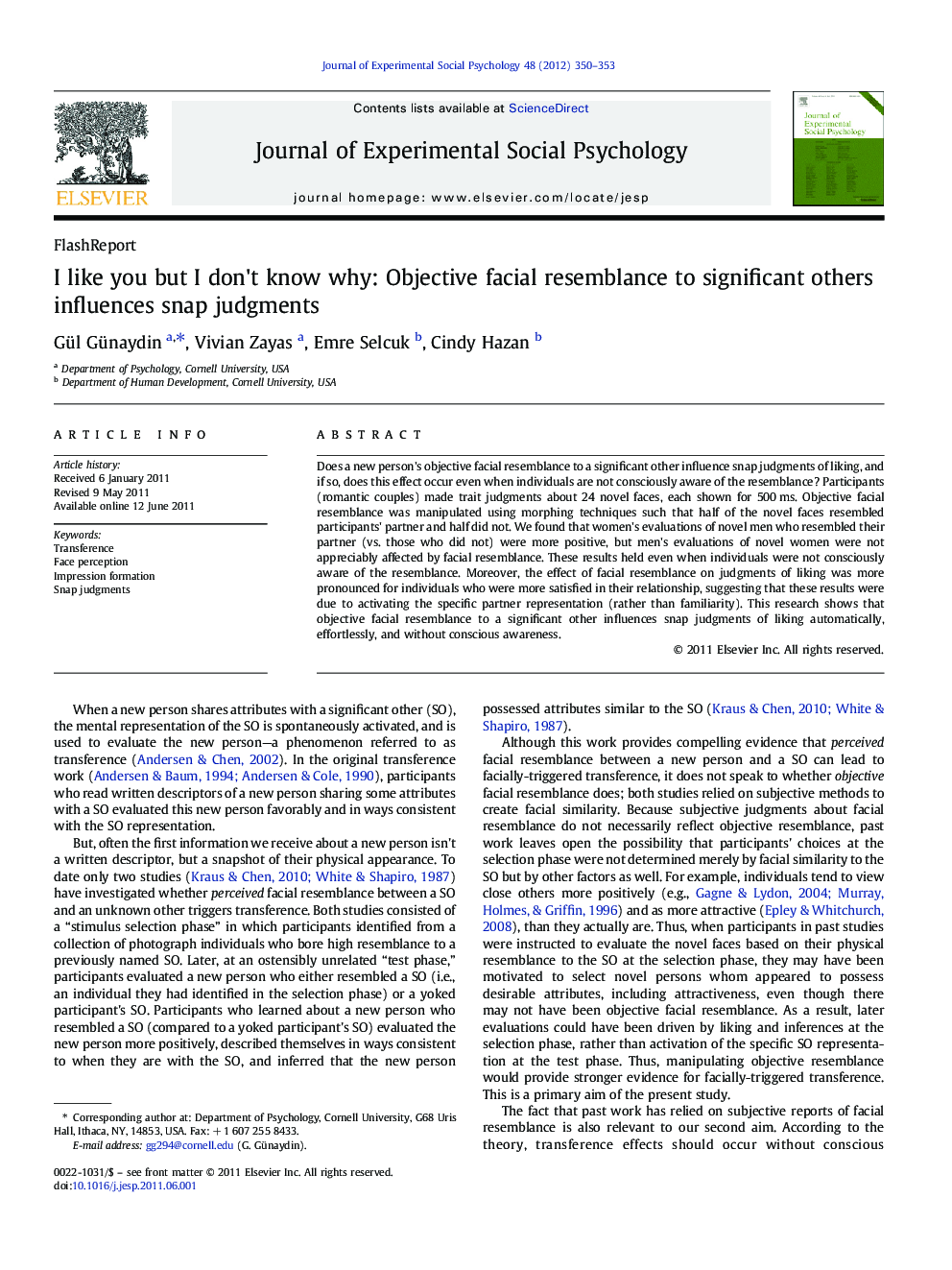| Article ID | Journal | Published Year | Pages | File Type |
|---|---|---|---|---|
| 948244 | Journal of Experimental Social Psychology | 2012 | 4 Pages |
Does a new person's objective facial resemblance to a significant other influence snap judgments of liking, and if so, does this effect occur even when individuals are not consciously aware of the resemblance? Participants (romantic couples) made trait judgments about 24 novel faces, each shown for 500 ms. Objective facial resemblance was manipulated using morphing techniques such that half of the novel faces resembled participants' partner and half did not. We found that women's evaluations of novel men who resembled their partner (vs. those who did not) were more positive, but men's evaluations of novel women were not appreciably affected by facial resemblance. These results held even when individuals were not consciously aware of the resemblance. Moreover, the effect of facial resemblance on judgments of liking was more pronounced for individuals who were more satisfied in their relationship, suggesting that these results were due to activating the specific partner representation (rather than familiarity). This research shows that objective facial resemblance to a significant other influences snap judgments of liking automatically, effortlessly, and without conscious awareness.
Research highlights► Using morphing, we created novel faces resembling participants' romantic partner. ► Women judged partner-similar novel faces more favorably than non-similar faces. ► Men's evaluations of novel faces were not affected by facial resemblance. ► Results held when individuals were not consciously aware of the resemblance. ► Relationship quality predicted favorable judgments of partner-similar faces.
